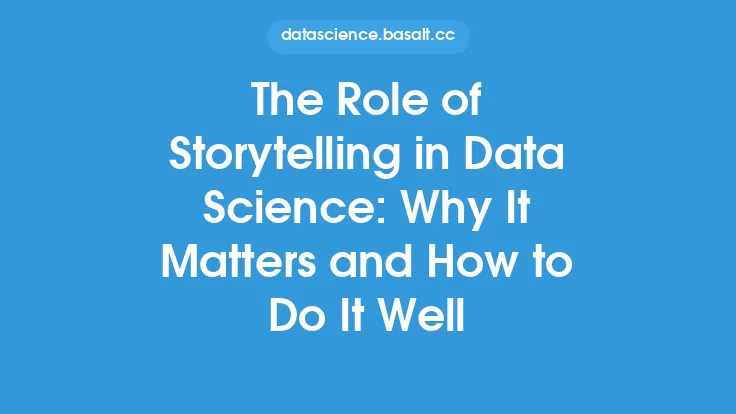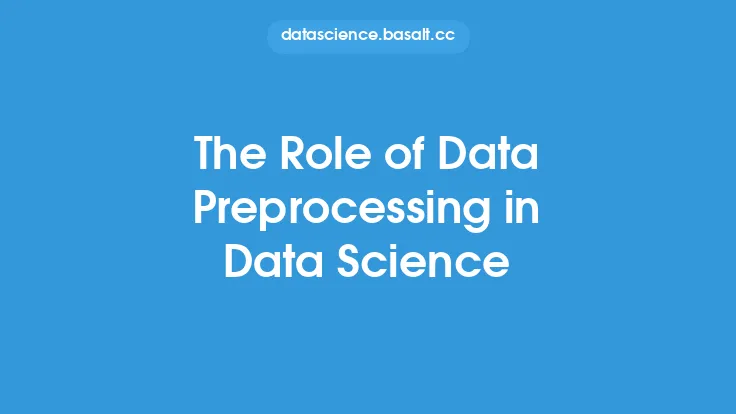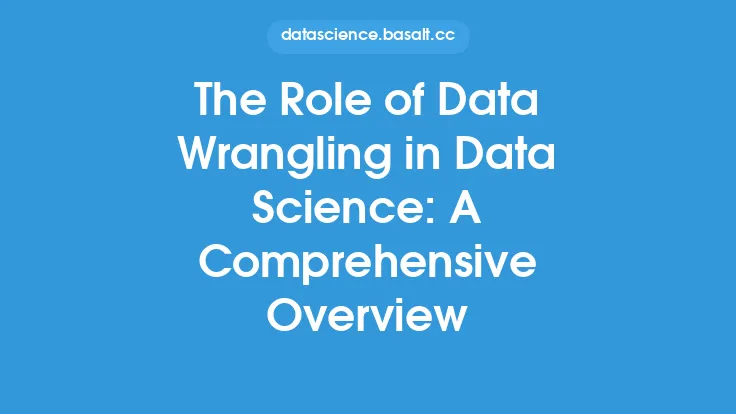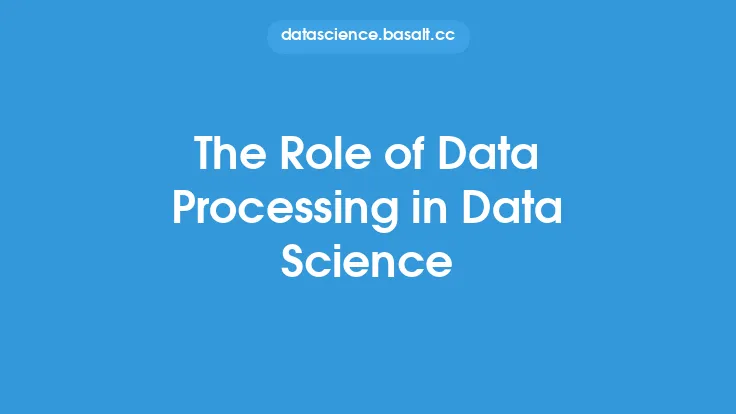In the realm of modern data science, the importance of data engineering tools cannot be overstated. These tools play a crucial role in the data science lifecycle, enabling data scientists and engineers to design, build, and maintain the complex systems that underpin data-driven decision making. At its core, data engineering is concerned with the development, testing, and maintenance of architectures that store, process, and retrieve data. Data engineering tools are the building blocks of these architectures, providing the necessary functionality to extract, transform, load, and analyze data.
Introduction to Data Engineering Tools
Data engineering tools are software applications or platforms that support the design, development, and deployment of data systems. These tools can be categorized into several types, including data integration tools, data storage tools, data processing tools, and data analytics tools. Data integration tools, such as Apache Beam and Apache NiFi, enable the integration of data from multiple sources, while data storage tools, such as relational databases and NoSQL databases, provide a repository for storing and managing data. Data processing tools, such as Apache Spark and Apache Flink, support the processing and analysis of large datasets, and data analytics tools, such as Tableau and Power BI, enable data visualization and business intelligence.
Data Engineering Tool Architecture
The architecture of data engineering tools is typically designed to support scalability, reliability, and performance. This is achieved through the use of distributed computing frameworks, such as Hadoop and Spark, which enable data processing to be split across multiple nodes. Data engineering tools also often incorporate data governance and security features, such as data encryption and access control, to ensure the integrity and confidentiality of data. Additionally, many data engineering tools provide support for real-time data processing and event-driven architectures, enabling organizations to respond quickly to changing business conditions.
Data Engineering Tool Categories
Data engineering tools can be categorized into several types, each with its own strengths and weaknesses. Data integration tools, such as Talend and Informatica, support the integration of data from multiple sources, while data storage tools, such as Amazon S3 and Google Cloud Storage, provide a repository for storing and managing data. Data processing tools, such as Apache Spark and Apache Flink, support the processing and analysis of large datasets, and data analytics tools, such as Tableau and Power BI, enable data visualization and business intelligence. Other categories of data engineering tools include data quality tools, data security tools, and data governance tools.
Data Engineering Tool Selection
The selection of data engineering tools depends on several factors, including the type and volume of data, the complexity of the data pipeline, and the skills and expertise of the development team. Organizations should consider factors such as scalability, reliability, and performance when selecting data engineering tools, as well as the tool's ability to support real-time data processing and event-driven architectures. Additionally, organizations should consider the total cost of ownership, including the cost of licensing, maintenance, and support, as well as the tool's compatibility with existing systems and infrastructure.
Data Engineering Tool Implementation
The implementation of data engineering tools requires careful planning and execution. Organizations should start by defining the requirements of the data pipeline, including the type and volume of data, the complexity of the data processing, and the desired outcomes. Next, organizations should select the appropriate data engineering tools, based on factors such as scalability, reliability, and performance. The implementation of data engineering tools should be done in a phased manner, with each phase building on the previous one. Organizations should also consider the use of agile development methodologies, such as Scrum and Kanban, to support the rapid development and deployment of data engineering tools.
Data Engineering Tool Maintenance
The maintenance of data engineering tools is critical to ensuring the ongoing reliability and performance of the data pipeline. Organizations should establish a regular maintenance schedule, which includes tasks such as software updates, backups, and performance monitoring. Additionally, organizations should consider the use of automated testing and deployment tools, such as Jenkins and Docker, to support the rapid deployment of updates and changes. The maintenance of data engineering tools should also include the monitoring of data quality and integrity, to ensure that the data pipeline is producing accurate and reliable results.
Data Engineering Tool Security
The security of data engineering tools is a critical consideration, as these tools often handle sensitive and confidential data. Organizations should consider the use of data encryption and access control, to ensure that data is protected both in transit and at rest. Additionally, organizations should consider the use of secure authentication and authorization protocols, such as OAuth and OpenID Connect, to ensure that only authorized users have access to the data pipeline. The security of data engineering tools should also include the monitoring of data for signs of tampering or unauthorized access, to ensure that the data pipeline is secure and reliable.
Data Engineering Tool Future
The future of data engineering tools is likely to be shaped by several trends, including the increasing use of cloud computing, the growth of real-time data processing, and the adoption of artificial intelligence and machine learning. Organizations should consider the use of cloud-based data engineering tools, such as Amazon Web Services and Google Cloud Platform, to support the scalability and reliability of the data pipeline. Additionally, organizations should consider the use of real-time data processing tools, such as Apache Kafka and Apache Storm, to support the rapid processing and analysis of large datasets. The future of data engineering tools should also include the use of automated machine learning and artificial intelligence, to support the rapid development and deployment of predictive models and data-driven decision making.





